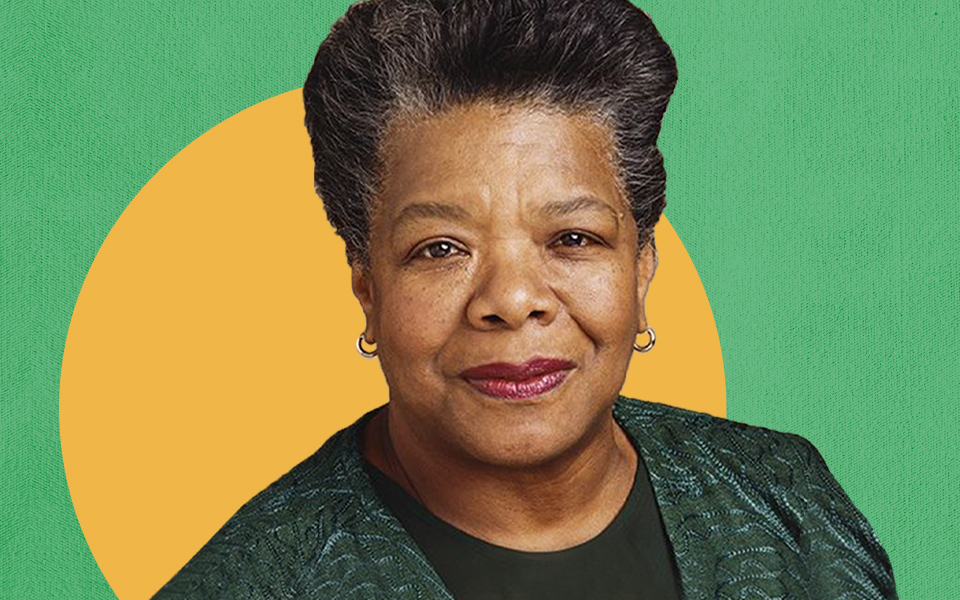April Birthday
Maya Angelou (born April 4, 1928, St. Louis, Missouri, U.S.—died May 28, 2014, Winston-Salem, North Carolina) was an American poet, memoirist, and actress whose several volumes of autobiography explore the themes of economic, racial, and sexual oppression.
Although born in St. Louis, Angelou spent much of her childhood in the care of her paternal grandmother in rural Stamps, Arkansas. When she was not yet eight years old, she was raped by her mother’s boyfriend and told of it, after which he was murdered; the traumatic sequence of events left her almost completely mute for several years. This early life is the focus of her first autobiographical work, I Know Why the Caged Bird Sings (1969; TV movie 1979), which gained critical acclaim and a National Book Award nomination. Subsequent volumes of autobiography include Gather Together in My Name (1974), Singin’ and Swingin’ and Gettin’ Merry Like Christmas (1976), The Heart of a Woman (1981), All God’s Children Need Traveling Shoes (1986), A Song Flung Up to Heaven (2002), and Mom & Me & Mom (2013).
- Maya Angelou was the first Black woman to conduct a cable car in San Francisco. As a teenager, Angelou earned a scholarship to study dance and drama at the California Labor School, but she briefly dropped out when she was 16 to become a cable car conductor in San Francisco.
- Porgy and Bess took Maya Angelou to Europe in the 1950s. After actors spotted her singing in a nightclub and asked if she could dance, Angelou got her foot in the door to join a touring company for Porgy and Bess. She turned down a lead role in a Broadway production of House of Flowers to join the company because it gave her the opportunity to travel throughout Europe.
- Maya Angelou spoke six languages. Angelou’s time in Europe also gave her the chance to hear other languages, and she paid very close attention. Ultimately, she learned to speak French, Spanish, Hebrew, Italian, and Fante (a dialect of Akan native to Ghana).
- Maya Angelou didn’t speak for five years in her youth. When she was just a child, Angelou was sexually assaulted by her mother’s boyfriend. She told her brother about the incident, and was later called to testify against the man in court, which led to his conviction. Ultimately, he served just one day in jail. Four days after his release, he was murdered—presumably by one of Angelou’s family members—and Angelou blamed herself for his death.
“I thought, my voice killed him,” she later wrote of her attacker. “I killed that man, because I told his name. And then I thought I would never speak again, because my voice would kill anyone.” For the next five years, Angelou refused to speak. Literature helped her find her voice again.
- Maya Angelou edited the Arab Observer. The Arab Observer was one of very few English-language news outlets in the Middle East during its publication from 1960–1966. While traveling in Egypt, Angelou met and married civil rights activist Vusumzi Make, and, after moving to Cairo, she scored a job as an editor for the Observer after W.E.B. Du Bois’s stepson David fudged her credentials. She’d never worked as a journalist before, but her job at the Observer tossed her into the deep end of reporting while working in an office full of men who’d never worked with a woman before. “Du Bois said I was an experienced journalist, wife of a freedom fighter, and an expert administrator,” Angelou said. “Would I be interested in the job of associate editor? If so I should realize that since I was neither Egyptian, Arabic, nor Moslem and since I would be the only woman working in the office, things would not be easy. He mentioned a salary that sounded like pots of gold to my ears.”
Maya Angelou was a chef, and she wrote two cookbooks. Is there anything Angelou couldn’t do? She used Hallelujah! The Welcome Table to explore recipes that held personal meaning for her, and with Great Food, All Day Long, she shared an abiding love of preparing meals for others while focusing on healthy courses. “If this book finds its way into the hands of bold, adventurous people, courageous enough to actually get into the kitchen and rattle pots and pans, I will be very happy,” Angelou wrote in the introduction to the latter title.
She had an inspiring grandmother
When Angelou was 3 years old, she and her older brother, Bailey Jr., were sent to Stamps, Arkansas to live with her paternal grandmother. Her grandmother, Annie Henderson (whom Angelou referred to as “momma”) was a child of a former enslaved person, and the only Black person in Stamps to own a general store in town. Her grandmother is also with whom Angelou credits her ability to read; Annie Henderson would bring back books from the local all-white schools, and taught Angelou and her brother how to read.
Her friend Martin Luther King, Jr. died on her birthday
Angelou had a multitude of prominent friendships over the course of her life, including Malcolm X and Oprah Winfrey. She had a close friendship with Martin Luther King Jr. When Angelou returned to the United States after having spent time living abroad, she was about to help organize a march for Martin Luther King Jr., but on her 40th birthday, April 4th, 1968, he was assassinated.







